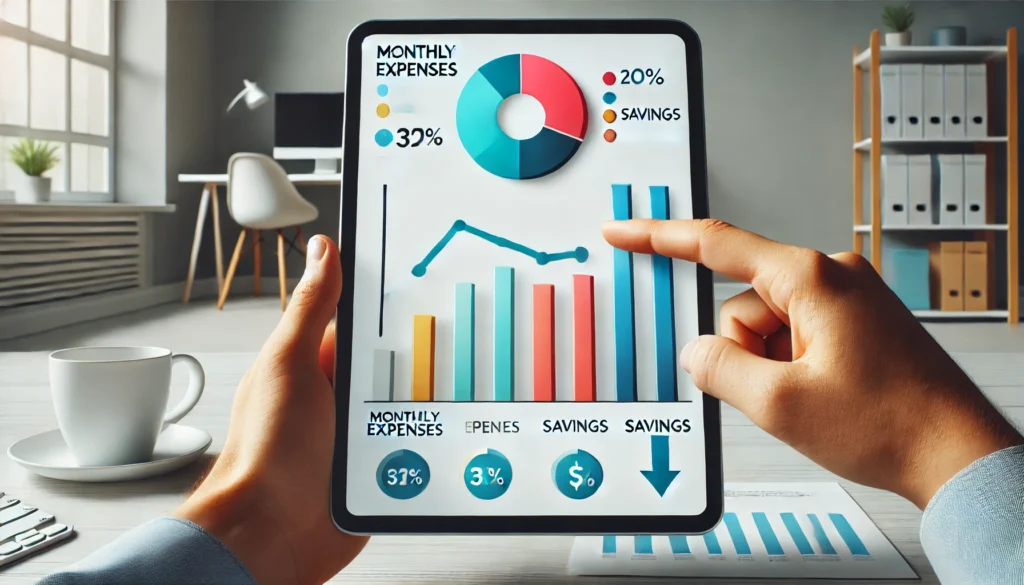Understanding Bill Negotiation Services and Their Impact on Household Budgets
For many households, the challenge of managing monthly expenses often feels like a relentless battle. Fixed costs like rent or mortgage payments, utilities, phone bills, cable subscriptions, and insurance premiums take up a significant portion of earnings. While some expenses may seem non-negotiable, the reality is that many bills can be reduced without sacrificing service quality. This is where bill negotiation services come into play, offering a practical solution for those seeking financial relief without drastic lifestyle changes.
You may also like: https://wealthwisebulletin.com/10-genius-frugal-living-hacks/
Bill negotiation services operate by analyzing your recurring expenses and negotiating with service providers on your behalf. They leverage industry expertise, insider knowledge, and negotiation tactics that the average consumer may not have access to, helping to lower costs for everything from internet bills to insurance premiums. By utilizing these services, individuals can unlock significant savings with minimal effort, freeing up cash for other financial goals such as investing, debt repayment, or building an emergency fund.

How Bill Negotiation Services Work to Reduce Expenses
The process of using a bill negotiation service is often straightforward and requires little effort from the consumer. Typically, users submit copies of their recurring bills—such as internet, phone, cable, and insurance—to a bill negotiation company. These companies then review the charges, identify potential savings, and reach out to service providers to negotiate lower rates or secure promotional discounts.
One of the key advantages of using bill negotiation services is their familiarity with industry pricing structures and promotional offers. Many providers offer lower rates or special discounts to new customers while continuing to charge existing customers higher prices. Bill negotiation professionals have the expertise to recognize these disparities and can often secure comparable savings for long-time subscribers. Additionally, they understand the nuanced language of service agreements, enabling them to challenge hidden fees and rate hikes that customers may not even be aware of.
For those skeptical about the effectiveness of these services, it is important to note that most bill negotiation companies operate on a contingency basis. This means that they only charge a fee if they successfully lower a bill—usually taking a percentage of the total savings secured. This performance-based model ensures that consumers pay only when they actually benefit, making it a low-risk option for those seeking to cut costs.
Common Bills That Can Be Negotiated Successfully
One of the most appealing aspects of bill negotiation services is their ability to reduce a wide range of expenses. While some people assume that only business accounts or large contracts can be negotiated, individual consumers can benefit just as much. The following are some of the most commonly negotiated bills:
Internet and Cable Bills
Internet and cable providers frequently increase their rates over time, often without explicit notification. While they may offer introductory pricing to attract new customers, these promotional rates typically expire, leaving long-term subscribers paying much more. Bill negotiation services can contact providers to request loyalty discounts, promotional pricing extensions, or reductions in unnecessary service charges. By doing so, they can often lower monthly internet and cable bills by a significant margin.
Cell Phone Plans
Many cell phone users pay for more data and features than they actually need, resulting in inflated bills. Bill negotiation experts analyze current usage patterns and identify opportunities to downgrade plans without compromising service. They may also negotiate directly with carriers to secure better deals, promotional offers, or hidden discounts that are not widely advertised.
Utility Bills
While some utility costs are regulated and may not be negotiable, others—such as electricity, gas, and water—can sometimes be reduced through strategic negotiations. In deregulated markets, bill negotiation services can compare rates from different providers and secure lower-cost alternatives. Additionally, some companies negotiate fees and surcharges imposed by utility providers, leading to noticeable savings.
Insurance Premiums
Insurance costs, including auto, home, and renters’ insurance, can often be negotiated to reflect competitive pricing. Bill negotiation services work by identifying redundant coverage, comparing market rates, and requesting better deals from insurers. Since many insurance companies adjust rates based on risk factors and customer profiles, having an expert negotiate on your behalf can lead to substantial savings.
Subscription Services and Membership Fees
Streaming services, gym memberships, and other subscription-based expenses can add up quickly. Many people continue paying for subscriptions they barely use or are unaware of automatic price increases. Bill negotiation services identify these expenses and either cancel unnecessary subscriptions or negotiate lower rates for those that are essential.
The Long-Term Financial Benefits of Using Bill Negotiation Services
Lowering monthly expenses through bill negotiation has far-reaching financial benefits beyond immediate savings. By reducing recurring costs, individuals can reallocate funds toward more meaningful financial goals. For example, cutting unnecessary expenses can accelerate debt repayment, reducing interest costs and shortening the time needed to achieve financial freedom.
Furthermore, reducing fixed costs strengthens financial resilience. Households that spend less on recurring bills are better equipped to handle unexpected financial setbacks, such as medical emergencies or job loss. This improved financial stability reduces reliance on credit and decreases the risk of falling into debt cycles that can be difficult to escape.
Choosing the Right Bill Negotiation Service
With numerous bill negotiation services available, selecting the right provider is crucial to maximizing savings. Consumers should look for companies with transparent pricing structures, positive customer reviews, and a track record of successful negotiations. It is also important to understand the terms of service—especially regarding fees—to ensure that any savings achieved outweigh the cost of using the service.
Some services operate on a flat fee basis, while others charge a percentage of the total savings obtained. The latter model is often preferable, as it aligns the interests of the service provider with those of the customer. Additionally, some bill negotiation companies offer money-back guarantees if they fail to secure savings, providing additional peace of mind.

Frequently Asked Questions: Advanced Insights into Bill Negotiation Services and Strategies
1. How can bill negotiation services impact long-term financial behavior and habits?
Engaging with bill negotiation services doesn’t just lead to short-term savings—it can fundamentally alter how individuals approach spending and financial planning. When users witness firsthand how recurring expenses can be trimmed without compromising lifestyle quality, they become more critical of other fixed costs, encouraging more thoughtful consumption patterns. These services often create a ripple effect, prompting users to examine their subscription habits, utility usage, and even broader budgeting strategies. Beyond immediate savings, bill negotiation cultivates a mindset of proactivity—people start looking for opportunities to reduce inefficiencies across their entire financial portfolio. It’s not merely about the dollars saved today, but about building lifelong habits of vigilance and optimization in money management.
2. Are there any risks associated with relying on an app to negotiate bills on your behalf?
While using an app to negotiate bills offers convenience and efficiency, it’s not without its trade-offs. Some apps may require access to sensitive financial data or account credentials, introducing privacy and security considerations. Additionally, outsourcing this responsibility can sometimes lead to a passive mindset—users may become overly dependent on automation and overlook the importance of reviewing contracts or advocating for themselves. There’s also the occasional mismatch between the app’s algorithms and the nuances of a user’s billing situation, particularly for niche or bundled services. Although most bill negotiation apps are built to maximize success, it’s wise to supplement them with personal oversight and occasional manual reviews to maintain full control over one’s financial ecosystem.
3. What do most people overlook when choosing a bill negotiation service?
Many consumers focus solely on the potential savings a bill negotiation service promises, but neglect to investigate the structure of fees, customer service quality, and negotiation transparency. Some services charge a percentage of the savings upfront, while others may incorporate hidden charges not disclosed until after negotiations are complete. Additionally, not all bill negotiation services specialize in the same types of bills—some may excel with cable and internet providers, while others focus on insurance or utilities. Reading reviews, comparing feature sets, and understanding each service’s negotiation tactics can make a significant difference. Choosing a bill negotiation service should involve as much scrutiny as one would apply when selecting a financial advisor.
4. Can bill negotiation services be customized for small businesses or freelancers?
Yes, there’s a growing trend of bill negotiation services being tailored specifically for small business owners, freelancers, and even solopreneurs. These customized solutions often take into account the complexity of commercial billing structures, multi-line service contracts, and tiered usage plans that differ from personal accounts. An app to negotiate bills on behalf of a business can uncover inefficiencies in vendor contracts, recurring SaaS subscriptions, or even cloud storage plans. Additionally, bill negotiation services targeting businesses often include usage analytics and forecasting tools that go beyond traditional consumer-focused platforms. This customized approach can help entrepreneurs optimize operational costs, leading to more sustainable profitability and better cash flow management.
5. How do social dynamics affect the use of bill negotiation apps in households?
In multi-person households, financial decisions often involve negotiation, compromise, and shared accountability. Using a bill negotiation app can streamline some of these processes, reducing tension around money management by removing the need for one person to “play the bad guy” in cost-cutting discussions. However, it can also introduce friction if household members disagree on which services should be trimmed or altered. In this context, bill negotiation becomes a collaborative rather than solitary exercise—requiring transparency about app settings, preferences, and thresholds for acceptable changes. These tools can serve as neutral third parties that depersonalize difficult financial conversations, but they still demand shared understanding to function optimally in a household setting.
6. What innovations are shaping the future of bill negotiation technology?
Emerging innovations in bill negotiation include AI-powered predictive modeling, integration with real-time billing APIs, and behavioral finance elements designed to increase user engagement. For example, some bill negotiation services are beginning to use AI to forecast when a user’s contract is up for renewal or when prices are likely to change, allowing proactive renegotiation before hikes occur. Additionally, apps that negotiate bills are increasingly incorporating gamified dashboards, nudges, and educational prompts to improve financial literacy. Voice-activated assistants and smart home integrations may soon make bill negotiation as simple as a spoken command. These advancements promise to make the bill negotiation experience more seamless, intuitive, and empowering for users.
7. How can you measure the effectiveness of a bill negotiation service over time?
To evaluate the true effectiveness of a bill negotiation service, it’s important to look beyond initial savings. Track how often the service revisits contracts, whether it automatically re-negotiates when rates change, and how its performance compares across different bill categories. Some apps to negotiate bills provide detailed monthly or quarterly savings reports, which can be analyzed for trends and efficiency. Long-term users might notice diminishing returns if all their bills have already been optimized, in which case switching providers or reassessing subscription needs might be necessary. Ultimately, effectiveness isn’t just about dollar amounts but about consistency, responsiveness to market changes, and integration into broader financial strategies.
8. What psychological barriers prevent people from using bill negotiation tools, and how can they be overcome?
Many people resist using bill negotiation services due to skepticism, fear of losing service quality, or discomfort with sharing personal information. There’s also a psychological bias known as “status quo bias,” where people irrationally prefer maintaining existing contracts—even when better deals are available. Overcoming these barriers often requires a shift in mindset: understanding that bill negotiation doesn’t mean sacrificing quality, but rather maximizing value. Testimonials, case studies, and trial periods can help users build trust in the process. Additionally, the growing transparency and user control in most modern apps to negotiate bills have made them far less intimidating, allowing users to ease in gradually with lower-risk bills.
9. Are there any differences in bill negotiation strategies between urban and rural users?
Yes, geographic location can significantly influence bill negotiation strategies due to differences in service availability, provider competition, and regulatory environments. In urban areas, users often benefit from more provider competition, giving bill negotiation services greater leverage to secure lower rates or better packages. Conversely, rural users may face monopolies or limited provider options, which can constrain the negotiation process. However, even in these cases, an app to negotiate bills can uncover savings through fee waivers, customer loyalty perks, or adjustments in billing plans based on actual usage. Tailoring negotiation tactics to regional contexts enhances success rates and makes these tools more effective for a broader user base.
10. How do bill negotiation services intersect with broader financial automation trends?
Bill negotiation services are part of a growing ecosystem of financial automation tools designed to simplify and enhance money management. As users increasingly automate everything from savings transfers to investment rebalancing, integrating a bill negotiation service into this flow ensures that recurring expenses are also optimized. Some apps to negotiate bills now offer integrations with budgeting software, credit monitoring platforms, and even tax preparation tools. This interconnectedness allows for a more holistic financial strategy where cost-cutting is just one layer of a broader automation plan. The future of financial wellness lies in seamless orchestration—where negotiation, tracking, and optimization happen behind the scenes, guided by smart algorithms and user-defined parameters.

Final Thoughts on Bill Negotiation as a Frugal Living Hack
Incorporating bill negotiation services into a frugal living strategy is a highly effective way to reduce financial stress and optimize household expenses. Rather than cutting back on essential services or making drastic lifestyle sacrifices, individuals can achieve meaningful savings simply by leveraging expert negotiation techniques. The minimal effort required makes this approach one of the easiest and most practical frugal living hacks available.
By proactively managing recurring expenses, consumers can take control of their financial health and direct their money toward more productive uses. Whether the goal is to build an emergency fund, invest for the future, or simply enjoy a little extra breathing room in the monthly budget, bill negotiation services offer a smart, low-risk way to achieve greater financial flexibility. For those looking to maximize savings while maintaining a comfortable standard of living, exploring bill negotiation services is a worthwhile step toward financial empowerment.
lower monthly bills, reduce recurring expenses, save money on bills, negotiate service fees, cut household costs, bill reduction strategies, frugal living tips, financial savings hacks, budget-friendly living, expense negotiation, lower internet bills, reduce phone bill, save on cable costs, utility bill discounts, insurance cost savings, subscription fee reduction, money-saving services, personal finance tips, financial freedom strategies, cost-cutting solutions
Further Reading:
Bill Negotiation: Get a Better Deal on Cable, Internet and More
Negotiating Bills: Scripts for Lowering Your Monthly Expenses
Legal Disclaimer
The information provided in this article is for general informational purposes only and is not intended to constitute financial, investment, legal, tax, or other professional advice. The content should not be relied upon for making any financial or investment decisions. Readers are encouraged to consult with licensed professionals, such as financial advisors, attorneys, or tax experts, to obtain personalized advice tailored to their individual circumstances. The author and publisher disclaim any liability for any actions taken or not taken based on the information provided in this article.





